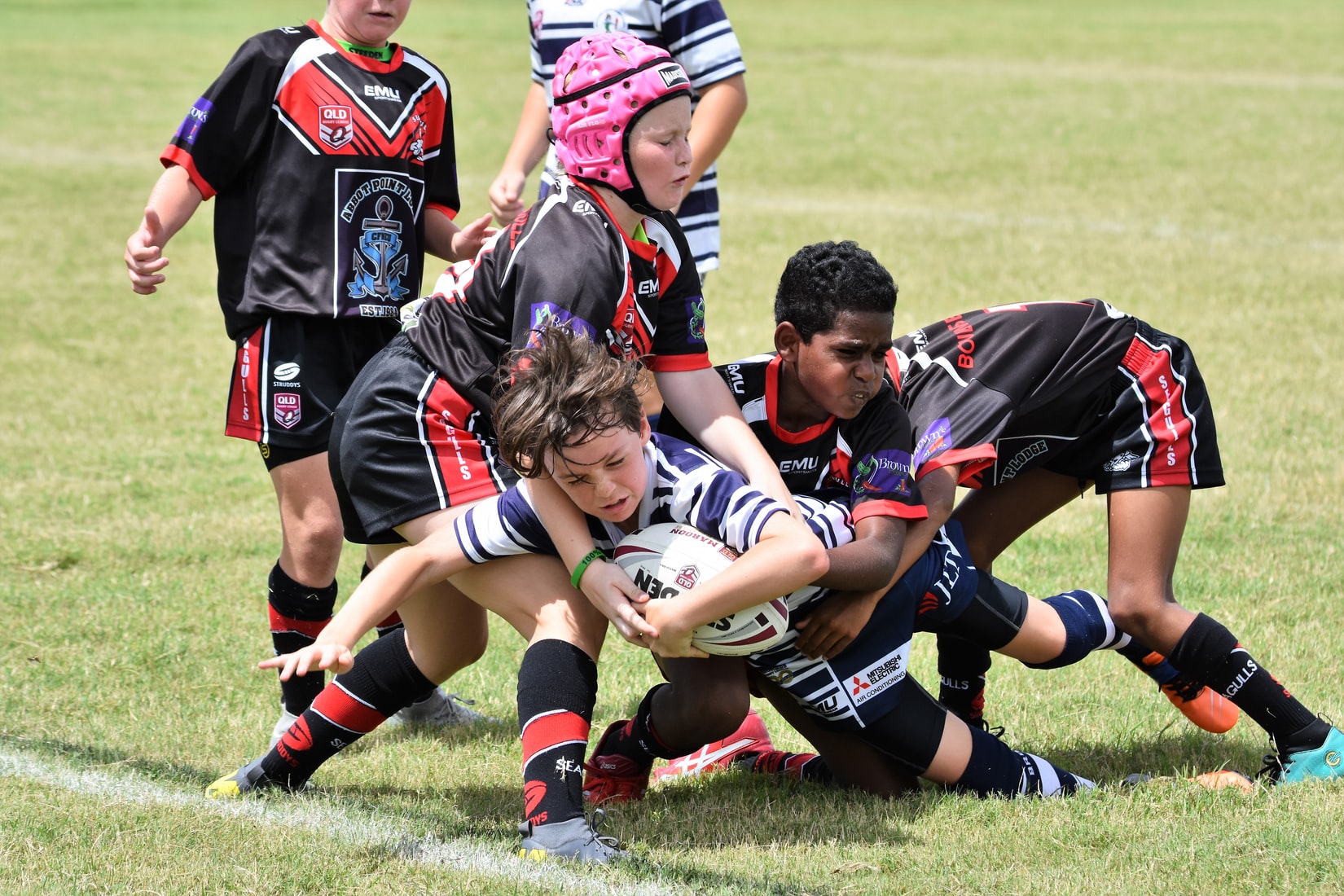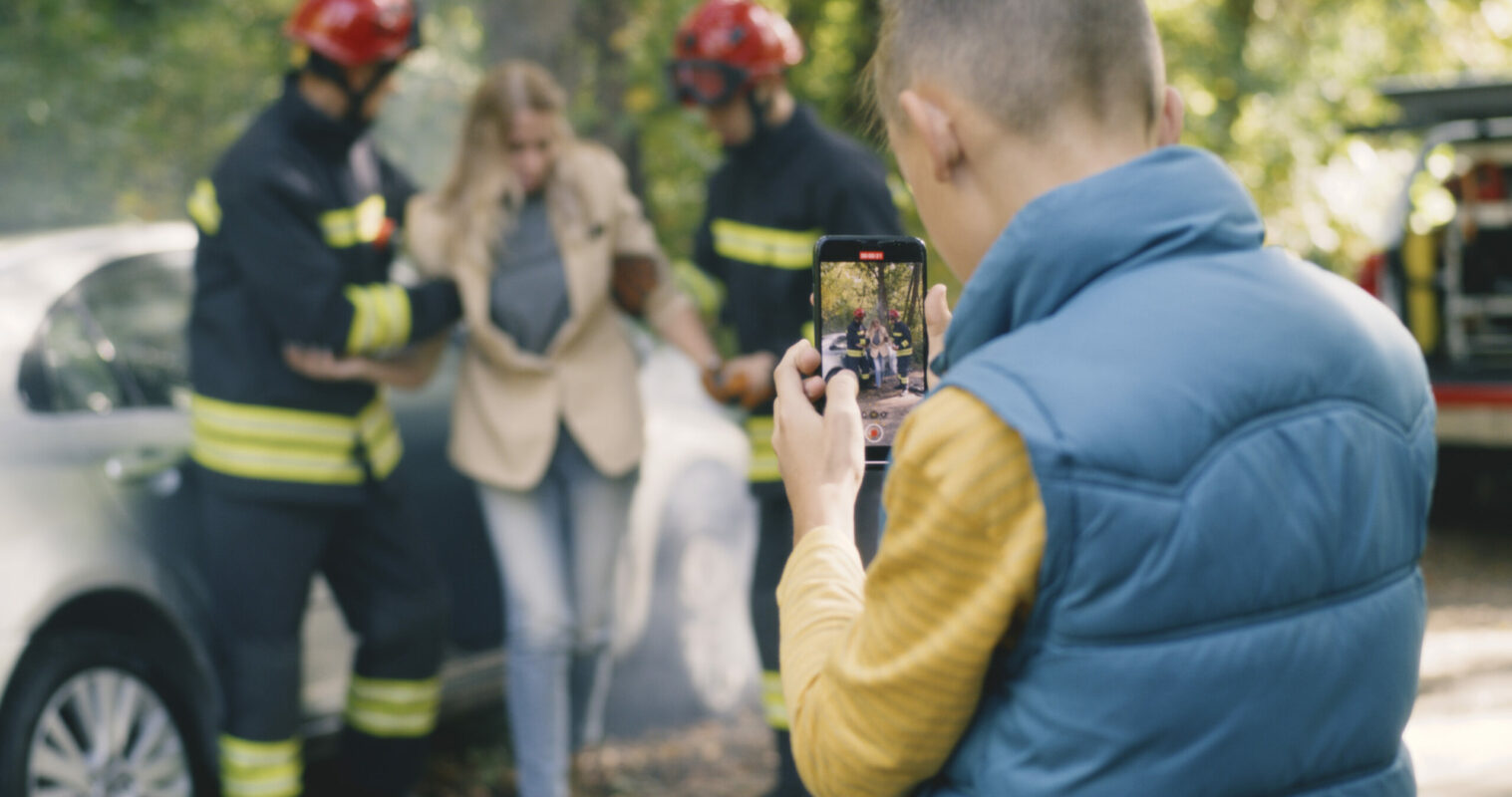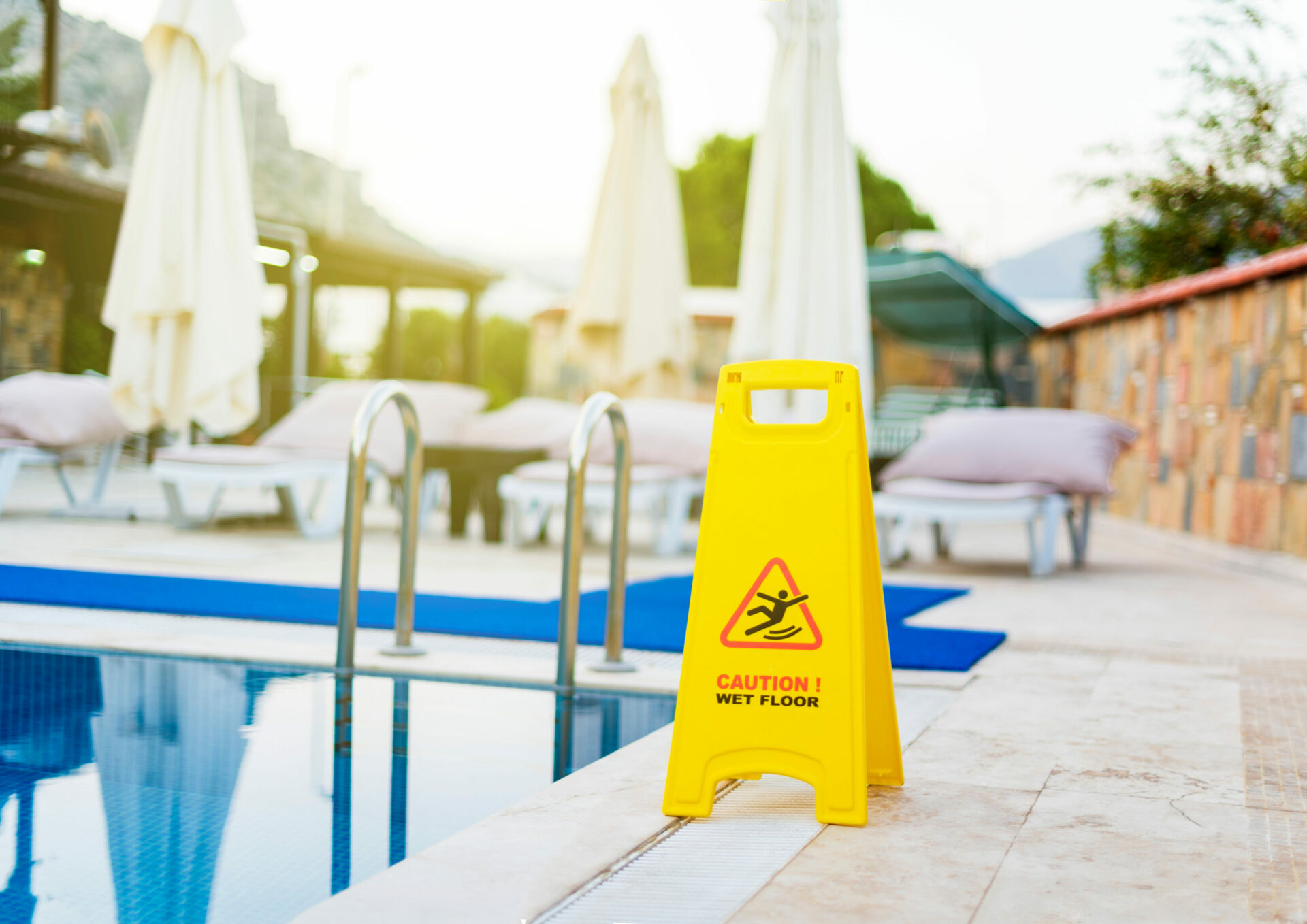
Rugby is a sport that breeds staunch men and women[1]. Pain is part of the game and young players are encouraged to ‘toughen up’ if they want any chance of playing professionally, or even semi-professionally.
However, more and more health professionals and experts are asking for the tackle and scrum to be banned in school rugby. Their views are highly controversial, but the evidence is mounting (although still inconclusive) that repeated head injuries sustained at a young age can cause major problems later in life, including the early onset of dementia.
The call for caution in school rugby
Rugby union and rugby league are the most commonly played collision sports in the physical education curriculum of schools in England[2]. In March 2016, more than 70 doctors and health experts wrote an open letter to ministers, chief medical officers and children’s commissioners, calling for the tackle to be banned in school rugby games[3].
The letter stated that children were being exposed to the risk of catastrophic injury: “The majority of all injuries occur during contact or collision, such as the tackle and the scrum”. The letter goes on to state: “These injuries, which include fractures, ligamentous tears, dislocated shoulders, spinal injuries and head injuries can have short-term, life-long and life-ending consequences for children”.
In September 2017, in an op-ed piece in the British Medical Journal, Allyson Pollock professor of public health and Director of Institute of Health and Society in the Medical Faculty of Newcastle University and Graham Kirkwood a former nurse and a senior research associate in the Institute of Health and Society at Newcastle University, called for the tackle and scrum to be banned in school sports[4]. In their opinion, they stated:
“Most injuries in youth rugby are due to the collision elements of the game, mainly the tackle. In March 2016, scientists and doctors in the Sport Collision Injury Collective (SCIC) called for the tackle and other forms of harmful contact to be removed from school rugby. The data in support of the call to remove the tackle and other forms of harmful contact in school rugby is compelling. We call on CMOs to act on the accumulating evidence and advise the UK government to put the interests of the child before the interests of corporate professional rugby unions and remove the tackle and other forms of harmful contact from the school game”.
Chronic Traumatic Encephalopathy
In 2002, Dr Bennet Omalu, a Nigerian-born pathologist, was about to examine legendary NFL centre Mike Webster and, just as he does with every deceased patient, spoke to him as he got to work on understanding what had happened. “Mike,” he said, “I am going to get to the bottom of this[5]”.
Mike Webster, known as Iron Mike, played for the Pittsburgh Steelers, helping to lead the team to four Super Bowl victories. However, the six-foot-two physical giant had lost a significant amount of his cognitive capacity; describing his mental anguish as a “deep, confusing, twisting fishing line tangled up mess of confusing things”. Towards the end of his life, he found himself sleeping in cars, his memory so fragmented, he could no longer find his way home. He had trouble concentrating, ranted at strangers, before dying of a heart attack at 50.
After examining Webster’s brain, Dr Omalu coined the term, Chronic Traumatic Encephalopathy (CTE) and wrote a paper entitled “Chronic Traumatic Encephalopathy in a National Football League Player[6]“, which was published in the July 2005 issue of Neurosurgery. He then examined a second NFL player, Terry Long, who killed himself, aged 45, after showing signs of similar behaviour to Webster’s. Like Webster’s, it showed the presence of tau proteins, which impair moods and cognitive function upon accumulation, similar to what occurred with boxers diagnosed with ‘punch-drunk syndrome’.
Dr Omalu examined the brains of two more NFL players, both of whom showed signs of memory loss, depression and lack of focus in their thirties and early forties and found CTE.
At first, was thought repeated concussion caused CTE. However, groundbreaking research, by Dr Lee Goldstein, and his colleagues, published in the journal Brain evaluated the brains of four deceased athletes, aged 17 and 18 years old. All four had died within a day to four months of receiving a sport-related head injury and had a history of playing football. Their research revealed that all four of the brains showed changes that could indicate CTE, including leaky blood vessels and abnormal buildups of the protein tau. Therefore, they concluded that early onset CTE could occur within 24 hours of a head injury and concussion was not a correlating factor.
Dr Goldstein and his team have stated that rather than focus on concussion, attempts should be made to reduce overall repeated blows to the head.
Should the tackle be banned after these findings?
There is compelling evidence that contact sport poses a risk to young children’s brains and later-life mental health. But, on both sides of the Atlantic, there is resistance to the research. Naturally, this infuriates medical professionals, including Julian Bailes, a neurosurgeon and former Pittsburgh Steelers’ team doctor. He told GQ magazine, who ran an in-depth article on CTE in 2009:
“Here we have a multi-billion-dollar industry. Where does their responsibility begin? Say you’re a kid and you sign up to play football. You realise you can blow out your knee, you can even break your neck and become paralysed. Those are all known risks. But you don’t sign up to become a brain-damaged young adult. The NFL should be leading the world in figuring this out, acknowledging the risk. They should be thanking us for bringing them this research. Where does their responsibility begin[7]?”
Here in the UK, Allyson Pollock and Graham Kirkwood have called on the British government to honour their duties under the Article 19 of the United Nations Convention on the Rights of the Child and remove collision from school rugby.
Let’s not wait for the lawsuits to mount up before we take action to protect the mental health of our children. It’s just a game after all. And there are many ways to play it.
Saracens Solicitors is a multi-service law firm based in London’s West End. We have a multi-lingual and highly experienced personal injury law team who have the expertise required to advise and represent you if you wish to claim compensation following a head injury. For more information, please call our office on 020 3588 3500.
Do you have any comments to make on this blog? Please feel free to add your thoughts below.
[1] http://www.telegraph.co.uk/rugby-union/2017/08/26/england-vs-new-zealand-womens-rugby-world-cup-final-2017-live/
[2] Department for Education. GCSE PE activity list. Jan 2015.www.gov.uk/government/uploads/system/uploads/attachment_data/file/447738/GCSE_activity_list_for_PE.pdf.
[3] https://www.theguardian.com/education/2016/mar/02/uk-health-experts-call-for-ban-on-tackling-in-school-rugby
[4] http://blogs.bmj.com/bmj/2017/09/25/allyson-pollock-and-graham-kirkwood-tackle-and-scrum-should-be-banned-in-school-rugby/
[5] http://www.telegraph.co.uk/football/2017/08/09/bennet-omalu-did-concussion-discovery-send-shock-waves-sport/
[6] https://www.ncbi.nlm.nih.gov/pubmed/15987548
[7] https://www.gq.com/story/nfl-players-brain-dementia-study-memory-concussions
Table of content
Recent Posts
Can You Put Digital Assets In A Trust? – How To Protect Your Digital Estate
In an era where our lives are increasingly played out [...]
Securing Legal Immigration Status After 20 Years in the UK
Gaining lawful immigration status after spending two decades in [...]
UK’s FCA Update: Stablecoins & Crypto Custody
The world of money is changing fast, and nowhere [...]








